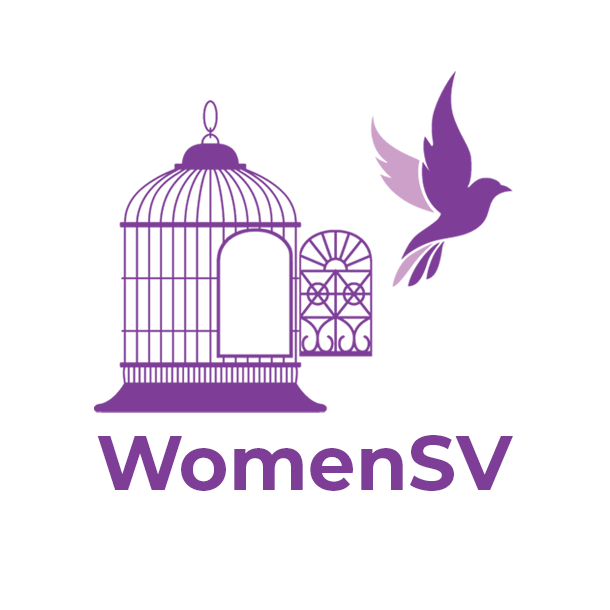Articles - Domestic Violence
Domestic Violence Articles
Domestic Violence 101
Domestic violence is : The intentional and consistent use of power to control an intimate partner through means such as physical, verbal, sexual and financial attacks. It includes any behaviors that intimidate, manipulate, humiliate, isolate, frighten, terrorize, coerce, threaten, blame, hurt, injure, or wound their partner—or someone their partner loves.
Red Flags for Abuse
Any of these red flags is an indication that your relationship is likely to become physically violent and/or emotionally abusive.
Risk Factors
A list of increased risk factors for domestic violence in relationships.
Domestic Violence and the Workplace
Domestic violence doesn't just affect women at home. It affects them in the workplace, compromising their safety and the safety of their fellow workers, their performance and productivity.
Why Does She Stay?
Strange that so often this question is asked: "Why does she stay?" as opposed to: "Why does he treat her that way and why doesn't he stop?" There are many reasons a woman continues to stay in an abusive relationship…
Ruth Darlene Patrick, Founder of WomenSV on Myths and Facts About Domestic Violence: Debunking Common Misconceptions
Domestic violence is a widespread and intricate problem that impacts people from all backgrounds. Nonetheless, numerous myths and misconceptions continue to be deeply rooted in our society, often leading to prolonged silence and suffering from victims.
Domestic Violence Case Study
This scenario combines the stories and characteristics of several survivors to illustrate how WomenSV resources can be used by both providers and clients.
A Social Worker’s Guide to Domestic Violence - Master of Social Work, Regis University
Domestic violence, also known as relationship violence, spousal abuse, or intimate partner violence, is often defined as any sort of abuse that occurs between romantic or sexual partners.
Ruth Darlene Patrick, Founder of WomenSV on How to Help a Friend Who is Experiencing Domestic Violence
In offering support to a friend suffering from domestic violence, it's essential to display empathy, understanding, and awareness of the resources available to them.
Ruth Darlene Patrick, Founder of WomenSV, on Key Imperatives for Serving Communities in Crisis
For many survivors and victims of abuse, nonprofit organizations help them chart the path from trauma to triumph.
How WomenSV Helps Domestic Violence Survivors
For survivors of domestic violence, the journey to healing and rebuilding their lives can be overwhelming and isolating. Domestic violence nonprofit WomenSV is making a significant impact in the lives of survivors, particularly those who have experienced covert abuse and coercive control.
Finding Healing and Hope: How WomenSV Empowers Domestic Violence Survivors
Through a range of programs and services, Los Altos-based WomenSV is providing validation, empowerment, education, and a sense of hope to survivors as they break free from the cycle of abuse.
Resources for Help with Domestic Abuse
Domestic abuse unfortunately impacts the lives of individuals across all demographics. It can be a harrowing and isolating experience, leaving victims in desperate need of support and guidance. Fortunately, there are numerous organizations and resources available to help those affected by domestic abuse.
How to Heal from Domestic Violence
Domestic violence is a distressing and deeply traumatic experience that can have profound and lasting effects on its survivors. While there is no one-size-fits-all approach to recovery, there are several strategies and steps that survivors can take to begin the process of healing and reclaiming their lives.
Bay Area Domestic Violence Survivor Resources
By offering a range of services tailored to the unique needs of diverse communities, these organizations and others are fostering a safer and more compassionate Bay Area.
Domestic Violence Survivor Recovery Tips
Healing from domestic abuse takes time and effort. Be patient with yourself, celebrate your resilience, and know that you deserve a life free from abuse.
Women's Domestic Violence Resources
A range of domestic violence resources exist to provide support, assistance, and empowerment to those who have experienced abuse. Here are a few crucial resources available to help survivors and how they can help break the cycle of violence.
The 3 Most Common Types of Intimate Partner Violence
While there are many types of Intimate Partner Violence, three of the most common types are physical abuse, sexual violence, and psychological / emotional abuse.
What are the Most Common Mental and Physical Health Problems that Result from Intimate Partner Violence?
In this article, we will explore some of the prevalent mental and physical health problems that arise from intimate partner violence.
Is Stalking a Form of Intimate Partner Violence (IPV)?
Recognizing and addressing stalking as a serious offense within the context of intimate partner relationships is essential for supporting and protecting victims.
Where to Find Accessible Information on Abusive Relationships
Empowerment begins with knowledge. By accessing these empowering sources of information and seeking support, individuals can embark on a journey of healing, reclaim their lives, and build healthier relationships moving forward.
What is Intimate Partner Violence? Understanding, Recognizing, and Responding to Domestic Abuse
Intimate partner violence refers to a pattern of abusive behavior within a current or former intimate relationship, where one partner exerts power and control over the other through physical, sexual, emotional, or financial means.
5 Essential Intimate Partner Violence Resources: Supporting Survivors and Breaking the Cycle
Here are five crucial resources that play a pivotal role in combating intimate partner violence, each of which offers a lifeline to survivors.
What Are the Mental Effects of Domestic Violence on Victims?
In this article we will shed light on the mental effects experienced by victims of domestic violence as well as the long-lasting impact on their emotional well-being and overall mental health.
Overcoming Silent Struggles: Challenges Faced by Domestic Violence Survivors
Escaping an abusive relationship marks the beginning of a new chapter, but it also brings forth a unique set of challenges for survivors.
Does God Really Want Survivors to Stay with Abusers?
One survivor says her faith tried to tell her yes, but she found a way out despite what she was raised to believe.
How to Help a Friend Experiencing Domestic Abuse: Tips from Ruth Darlene of WomenSV
Learn how to help a friend experiencing domestic abuse with expert guidance from Ruth Darlene of WomenSV, a leading advocate and educator on coercive control and domestic violence prevention. Start with these helpful tips on what to say, what not to do, and how to offer safe, effective support.



























